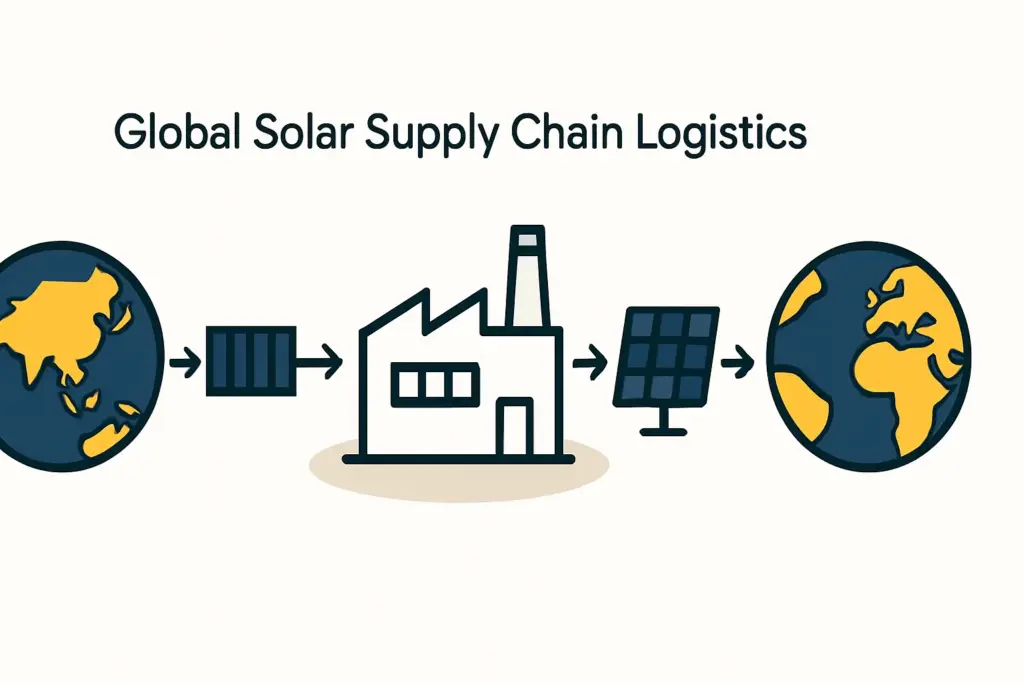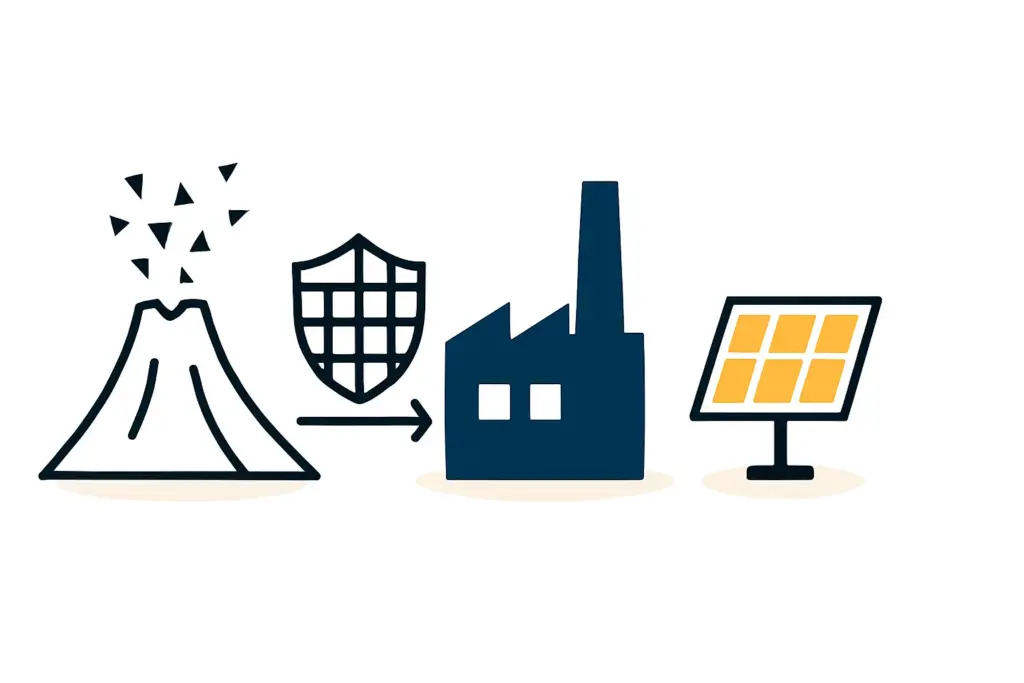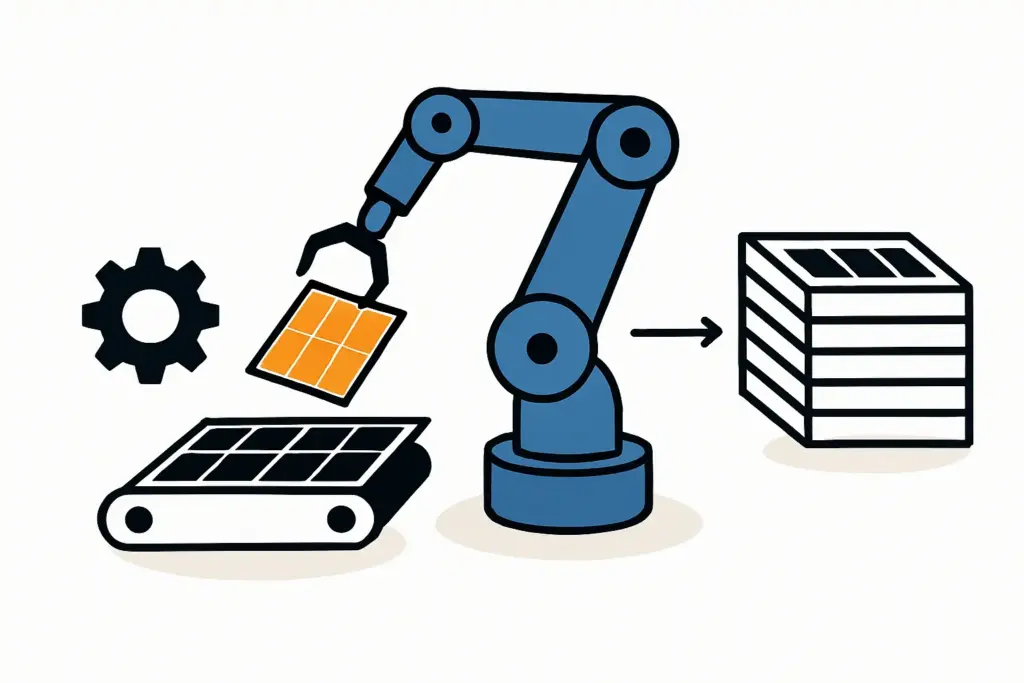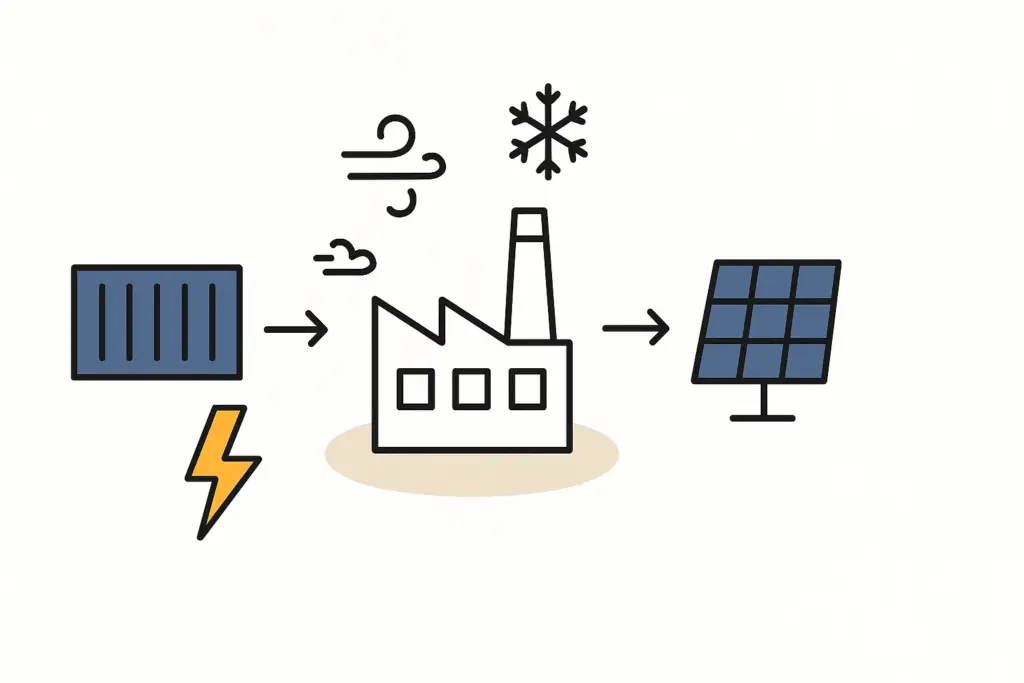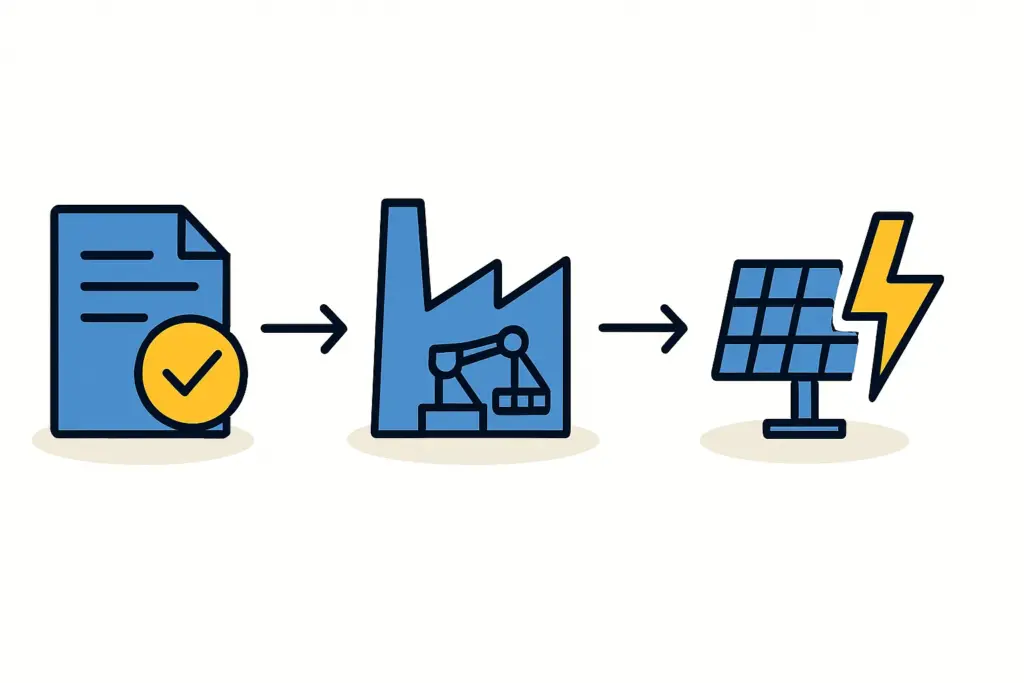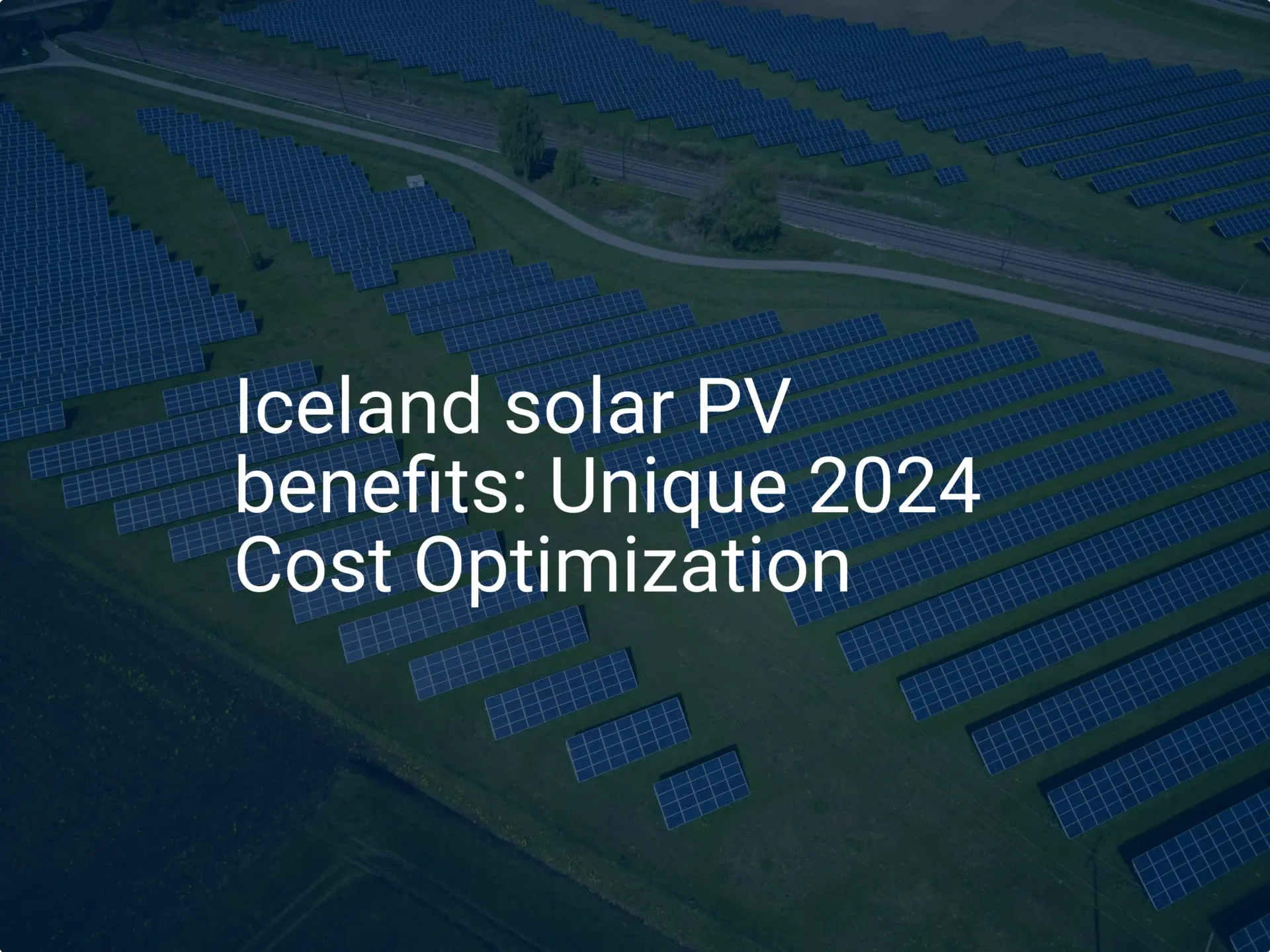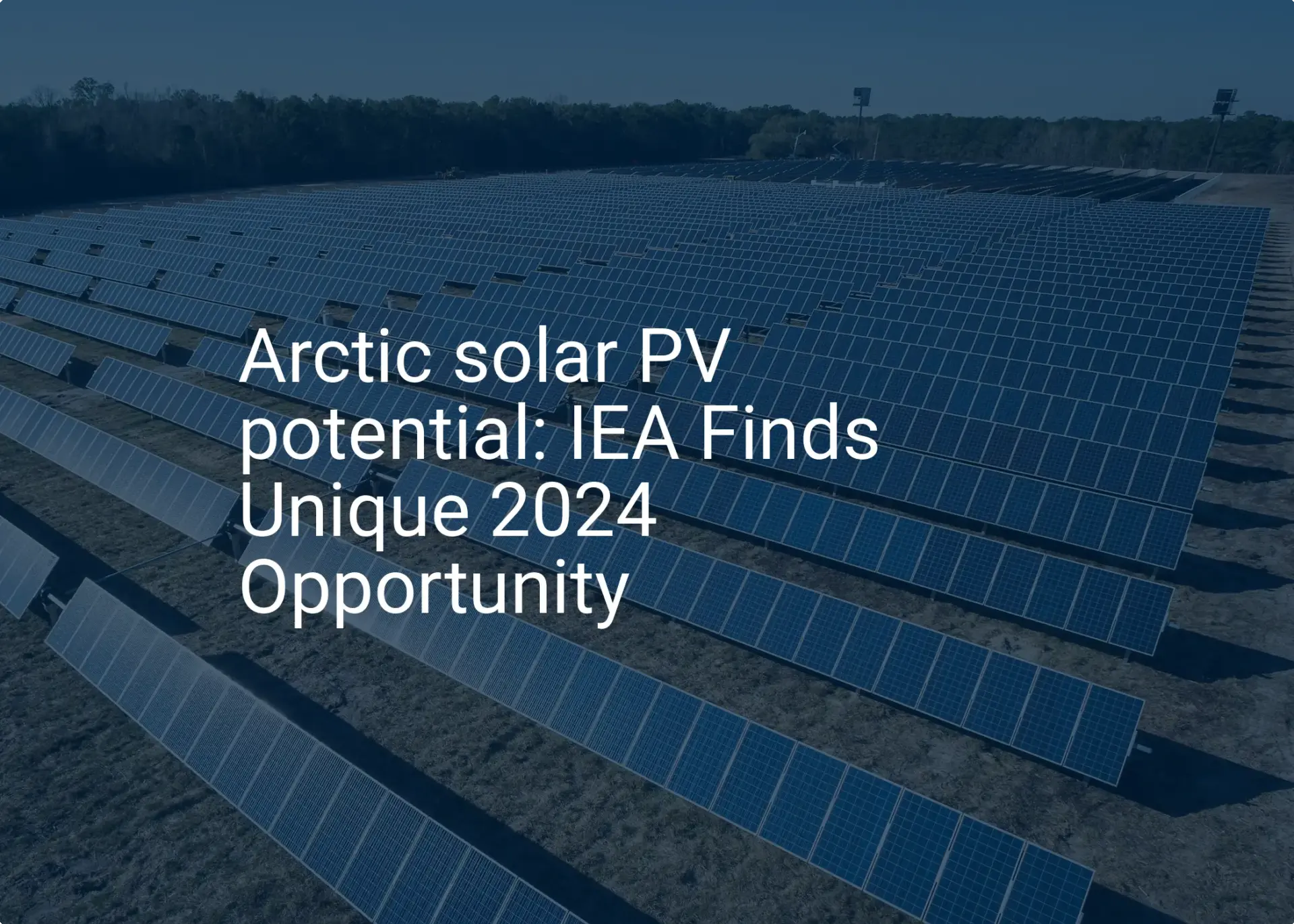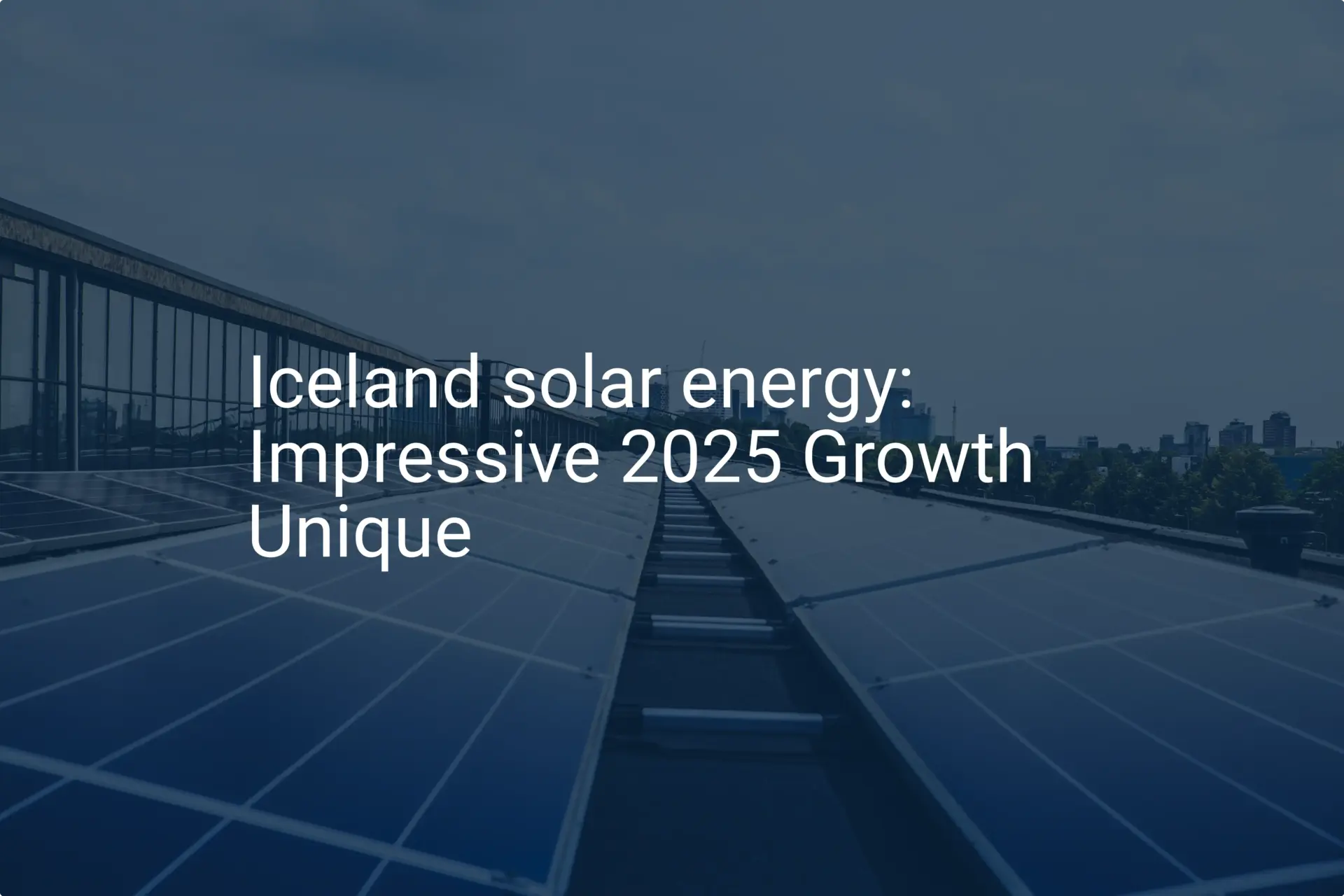Discover comprehensive insights into the statistics, market trends, and growth potential surrounding the solar panel manufacturing industry in Iceland
- Weather and Climate (n.d.). Average Monthly Sunshine hours in Reykjavík. Retrieved November 6, 2024, from https://weather-and-climate.com/average-monthly-hours-Sunshine,Reykjavik,Iceland
- Profile Solar (n.d.). Solar PV Analysis of Reykjavik, Iceland. Retrieved November 6, 2024, from https://profilesolar.com/locations/Iceland/Reykjavik/
- Global Petrol prices (2024, March). Iceland electricity prices. Retrieved November 6, 2024, from https://www.globalpetrolprices.com/Iceland/electricity_prices/
- Askja Energy (n.d.). The Icelandic TSO. Retrieved November 6, 2024, from https://askjaenergy.com/transmission/iceland-electricity-tso/
- Pollý Hilmarsdóttir (2015, June). Electricity Security in Iceland. Retrieved November 6, 2024, from https://skemman.is/bitstream/1946/20893/1/PollyH_Electricity_Security.pdf
- International Renewable Energy Agency (2024). Renewable energy statistics 2024. Retrieved November 6, 2024, from https://www.irena.org/-/media/Files/IRENA/Agency/Publication/2024/Jul/IRENA_Renewable_Energy_Statistics_2024.pdf
- Iceland Monitor (2024, May 3). Solar energy will become a competitive choice in the energy market. Retrieved November 6, 2024, from https://icelandmonitor.mbl.is/news/news/2024/05/03/solar_energy_will_become_a_competitive_choice_in_th/
- Universe Space Tech (2024, October 25). Space power plant will provide Iceland with solar energy. Retrieved November 6, 2024, from https://universemagazine.com/en/space-power-plant-will-provide-iceland-with-solar-energy/
- Think Geo Energy (2011, November 25). Iceland offers geothermal power at $4.3 cents per kWh. Retrieved November 6, 2024, from https://www.thinkgeoenergy.com/iceland-offers-geothermal-power-at-43-cents-per-kwh/
- Birgir Freyr Ragnarsson (2014). Wind energy potential assessment & cost analysis of a wind power generation system at Búrfell. Retrieved November 6, 2024, from https://skemman.is/bitstream/1946/18651/1/Birgir_Freyr_Ragnarsson_MSc_2014.pdf
- PV Magazine (2024, October 29). Space Solar secures letter of intent from Reykjavik Energy. Retrieved November 6, 2024, from https://www.pv-magazine.com/2024/10/29/space-solar-secures-letter-of-intent-from-reykjavik-energy/
- Statista (2023, September). Main sources of electricity generation in Iceland in 2022. Retrieved November 6, 2024, from https://www.statista.com/statistics/1192014/iceland-electricity-generation-by-source/
- Wikipedia (n.d.). Energy in Iceland. Retrieved November 6, 2024, from https://en.wikipedia.org/wiki/Energy_in_Iceland
- Rarik (n.d.). Notifications – Power outages. Retrieved November 6, 2024, from https://www.rarik.is/tilkynningar
- Orkustofnun (2024, June 27). Applications for solar cell grants. Retrieved November 6, 2024, from https://orkustofnun.is/en/information/individuals
- Iceland Monitor (2024, October 24). Iceland could be a reception site for solar power plants in space. Retrieved November 6, 2024, from https://icelandmonitor.mbl.is/news/news/2024/10/19/iceland_could_be_a_reception_site_for_solar_power_p/
- Open Infra Map (n.d.). Power plants in Iceland by source. Retrieved November 6, 2024, from https://openinframap.org/stats/area/Iceland
- PV know-how (2024, August 2). Iceland Subsidises Solar Panel Installation Costs. Retrieved November 6, 2024, from https://www.pvknowhow.com/iceland-subsidies-solar-panel-installation-costs/
- Nordic Roads (2023, September 7). Greener Lighthouses. Retrieved November 6, 2024, from https://nordicroads.com/greener-lighthouses/
- World Energy Council (2024, June). Island. Retrieved November 6, 2024, from https://www.worldenergy.org/assets/downloads/Issues_Monitor_2024_Iceland_commentary.pdf
- Ministry of the Environment, Energy and Climate (2022, March). The State and Challenges of Energy Affairs. https://www.stjornarradid.is/library/02-Rit–skyrslur-og-skrar/URN/URN_State_of_Energy_Issues_EN_Web.pdf
- Time Camp (n.d.). Average Salary in Iceland. Retrieved November 6, 2024, from https://www.timecamp.com/average-salary/iceland/
- Salary Explorer (n.d.). Solar Engineer Average Salary in Iceland 2024. Retrieved November 6, 2024, from https://www.salaryexplorer.com/average-salary-wage-comparison-iceland-solar-engineer-c99j11250
- World salaries (n.d.). Average Solar Photovoltaic Installer Salary in Iceland for 2024. Retrieved November 6, 2024, from https://worldsalaries.com/average-solar-photovoltaic-installer-salary-in-iceland/
- World salaries (n.d.). Solar Energy Installation Manager Average Salary in Iceland 2024. Retrieved November 6, 2024, from https://www.salaryexplorer.com/average-salary-wage-comparison-iceland-solar-energy-installation-manager-c99j12677
- Worldometers (n.d.). Iceland population. Retrieved November 6, 2024, from https://www.worldometers.info/world-population/iceland-population/
- Facebook group – Rent rent rent Iceland (2023, November). Live/Work Space for rent in Garðabær. Retrieved November 6, 2024, from https://www.facebook.com/groups/941646643704324/search/?q=warehouse
- Veitur (n.d.). Rates. Retrieved November 6, 2024, from https://www.veitur.is/verdskrar
- Instant offices (n.d.). Office space in Reykjavik. Retrieved November 6, 2024, from https://www.instantoffices.com/en/is/available-office-space/reykjavik/hallgerdargata-111713?type=1
- Statista (2024, September). Non-life insurances – Iceland. Retrieved November 6, 2024, from https://www.statista.com/outlook/fmo/insurances/non-life-insurances/iceland
- Advanced Energy Technologies (2023). Energy industry in Iceland. Retrieved November 6, 2024, from https://aenert.com/countries/europe/energy-industry-in-iceland/
- Government of Iceland (n.d.). Ministry of the environment٫ energy and climate. Retrieved November 6, 2024, from https://www.government.is/topics/business-and-industry/energy/
- Our future energy (n.d.). Iceland. Retrieved November 6, 2024, from https://ourfuture.energy/energy-mix/iceland/
- Visit Iceland (n.d.). Iceland is a leader in renewable energy. Retrieved November 6, 2024, from https://www.visiticeland.com/article/renewable-energy
- Government of Iceland (n.d.). Electricity Act. Retrieved November 6, 2024, from https://www.government.is/media/atvinnuvegaraduneyti-media/media/acts/Act-No-65-2003-on-Electricity.pdf
- De Gruyter (2024, June 11). Obligations for owners to climate-proof buildings in Iceland. Retrieved November 6, 2024, from https://www.degruyter.com/document/doi/10.1515/eplj-2024-0006/html
- Ministry of Industries and Innovation (2009, June 30). The Icelandic National Renewable Energy Action Plan. Retrieved November 6, 2024, from https://energy.ec.europa.eu/document/download/7b6e89ad-9e3b-474f-80d0-3ea5bd03b404_en?filename=dir_2009_0028_action_plan_iceland__nreap.pdf
- Arctic portal (2024, May 2). Great possibilities to improve energy use and energy procurement in Iceland – New report issued for the Ministry of the Environment, Energy and Climate. Retrieved November 6, 2024, from https://arcticportal.org/ap-library/news/3561-great-possibilities-to-improve-energy-use-and-energy-procurement-in-iceland-new-report-issued-for-the-ministry-of-the-environment-energy-and-climate
- PV Know how (2024, August 2). Iceland subsidies solar panel installation costs. Retrieved November 6, 2024, from https://www.pvknowhow.com/iceland-subsidies-solar-panel-installation-costs/
- Space Solar (2024, October 23). Space Solar and Transition Labs to deliver space-based solar power to Iceland by 2030. Retrieved November 6, 2024, from https://www.spacesolar.co.uk/space-solar-and-transition-labs-to-deliver-space-based-solar-power-to-iceland-by-2030/





